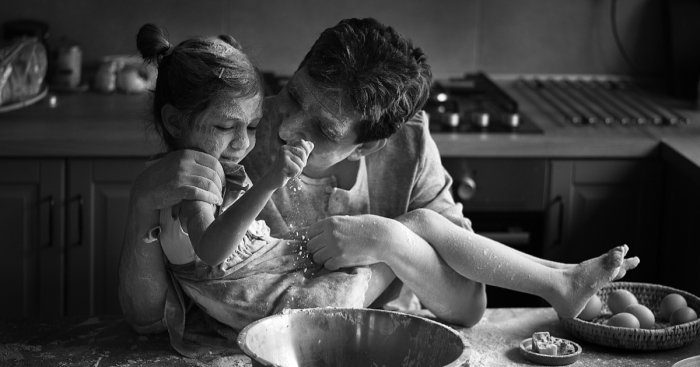
One Bread, 26 Days: I Made Bread With My Daughter To Teach Her About Life
“Bug, will you help daddy make bread?”
“Real bread?”
“Yes, bug, good, fluffy bread we can all eat.”
One second later, she was in the kitchen. That’s how the 26-day father-daughter bread-making adventure began.
“In an hour, or slightly over an hour, we need to make the dough. If we can’t, it’s not ok and we have to start over another time.”
“Really?”
“Yes, cub, that’s the rule.”
“Mmmfine…”
I made sure to add a stop sign from the very beginning, a sign that meant we haven’t done things well, or the entire point would be lost.
“First of all, we sift the flour.”
“Why, daddy?”
“To make sure it doesn’t have any tiny stone or lump which can ruin our bread later.”
“Stone? It’d break our teeth… well, where’s the strainer?”
Flour. Strainer. Kid. It isn’t a very productive combination, especially when you add novelty to it all.
“Daddy, but where are the rocks?”
“There aren’t any, bug. That means the flour was clean, but I have a question, too…”
“Yes?”
“Where’s the flour?”
“What do you mean?”
“Well, where is it? It should have been here, in the trough.”
She stared at me with huge eyes and white eyelashes. She was just sweaty enough to be sticky and collect flour on every inch of her skin, from her ears down to the knees coming out under her dress. She looked around and raised her hand to her chest in surprise.
“Oh dear, daddy, it’s everywhere!”
During half an hour of sifting, because she sifted it again and again after she was done the first time, pouring it repeatedly through the thin strainer, she’d managed to get flour all over the table, the floor, the three counter tops, the sink and her dad.
I was covered in flour even in the crack of my a… err, ears.
“Bug, it’s been nearly an hour and we’ll run out of time before I finish cleaning up this mess… that’s enough bread-making for today.”
“Enough?”
It was a terrible disappointment, especially since she’d already told mommy about the amazing bread she’d have for her.
“It’s alright, cub, we’ll try again and maybe we’ll succeed next time.”
“Come on, daddy, please, let’s try again now…”
There was more pain on her face than on that of a baker’s whose oven burned down a hundred French baguettes… I picked her up and took her to the mirror.
Her tears had dug two lines on her face, down to her chin, one on each cheek. The rest of her face was powdered in sadness and flour. She burst into laughter when she saw herself, too.
“Tomorrow, Ioana, tomorrow we’ll make amazing dough.”
It didn’t happen on the next day, either. We went through the sifting part just fine, but the yeast gave us real trouble. After Ioana sifted the flour and created a tiny bed in it with her hands, I took out the magic packet.
“Look, cub, this is yeast. It makes dough become fluffy, if we wake it up and feed it right.”
“Does it sleep in the fridge like that?”
“Yes, it rests when it’s cold and doesn’t do anything. We have to feed it warm water, sugar and a bit of flour to get it to work.”
She skillfully opened the packet with her fingers, without complaining that it’s icky to the touch (the way I was expecting). She put a bit of sugar on it, but didn’t have enough patience to wait for the water to cool.
“Bring the water, daddy, look how hungry it is…”
Her greatest joy is feeding things, nothing makes her happier. She feeds anything she possibly can: parents, guests, birds, animals, caterpillars, toys, flowers (chocolate candy for them, so they’ll bloom sweetly).
“The water’s too hot, we have to wait until it cools a little.”
“Nooo, daddy, it’s already crying because it’s so hungry!”
“You’ll hurt it…”
She poured the boiling water over the yeast which, just like most living organisms, didn’t take it too well.
“Gooood, now it’s not hungry anymore. Now?”
“In ten minutes it should start bubbling, it’s a sign that the yeast started working and we can make the dough. You can play while we wait.”
She didn’t leave the table, she watched the water in the middle of the flour as carefully as she could.
“Daddy, has it been ten minutes yet?”
“Yes, eleven, actually.”
“Then why isn’t it bubbling?”
“Bug, what happens when you don’t have the patience to wait for the soup to cool down, and taste it when it’s really hot?”
“I burn myself, daddy.”
“Then?
She looked at the still water, at me, at the flour, at the ceiling…
“Did the yeast get burned, daddy, because the water was too hot?”
“Yes, Ioana, we didn’t have the patience to let it cool down a little and we messed it up again. If it doesn’t bubble up, the dough won’t be good.”
Another failure, another sad, sad baker. And that’s how, every two or three days, we kept trying to make bread. We made all sorts of mistakes, but never the same one twice. It made me surprisingly happy that Ioana never did the same thing wrong more than once.
After we got past breaking eggs, after the tragedy of dough sticking to hands which hadn’t been oiled, after forgetting to add salt for taste, we finally had well-kneaded dough.
“Victoryyyy, daddy, finally!!! In the oven!!!”
“Ioana, we have to cover it with a towel and let it grow a bit in a warm place, and only then do we put it in the oven.”
I could have been talking to myself, when she heard we had to wait for two hours, she didn’t care how fluffy the bread would be. It had to be put into the oven right then.
“Bug, you saw that whenever we were impatient things went badly…”
“Don’t worry, daddy, I feel it’ll be soft and good…”
When I brought the thing out of the oven (you really couldn’t call it bread), she lost some of her optimism. When she saw me cutting it as if I were slicing a brick, she lost more of her optimism. After chewing on a piece for five minutes, she lost all of it.
“Ooof, daddy, if we’d had patience for the dough to rise, would it have been good?”
“Yes. Don’t worry, birds will like it like this, too…”
She cheered up immediately(the result had gotten her really sad) and, after she saw a few great tits fighting for the rock-hard bread, she told me we should try again.
“In three days, Ioana, let’s rest a bit. On Saturday we’ll make such good bread that we’ll call guests to enjoy it, too.”
It was the supreme test, a bread not just for us, but for our friends, too. She couldn’t wait to bake something as important as that and she kept asking me whether it was Saturday yet.
Eventually, it was. She greeted me with “We’re making bread today”, instead of “Good morning, daddy”.
It all went perfectly. It was amazing how focused and patient a child can be when bread depends on it. I had to keep wiping smiles off my face so she wouldn’t think I was making fun of her work.
Not only was she no longer impatient, but she berated me, too, when I seemed to not pay enough attention, or when I did things differently than I’d explained earlier on.
“Has it grown enough, daddy?”
When I took the towel off the trough and she saw the dough rising up to the edges, she started jumping around joyfully. When we took the beautiful, brown bread out of the oven, she cried out so hard that even astronauts heard it was done. When we sliced it, revealing how white and fluffy it was on the inside, she brought her tablet to take pictures.
When we sat at the table and all of us tasted it at the same time and hummed in delight, she didn’t say another word. She felt so much pride and joy that she couldn’t speak, but her wet eyes and softly clapping hands told the whole story.
It took us twenty-six days and each one of them was worth it.
Did Ioana learn that doing things well in life requires patience, effort, care and perseverance? Of course not, but I have another fifteen years ahead to bake bread with her and do a thousand other things which can show her what lies behind the scenes of every fulfilled dream.
More info: goodreads.com
Teamwork
The baker
I’m out… more flour, daddy!
Three eggs?
It’s snowiiiing!
Ioana
I think I’m done for the day
Aftermath, day one
4Kviews
Share on FacebookDear Vlad, good story. May I translatie it in Dutch and send it to my friends, of course with mentoning the source and your name? Dirk Hanssens, a benedictine monk
Dear Vlad, good story. May I translatie it in Dutch and send it to my friends, of course with mentoning the source and your name? Dirk Hanssens, a benedictine monk

 Dark Mode
Dark Mode 

 No fees, cancel anytime
No fees, cancel anytime 


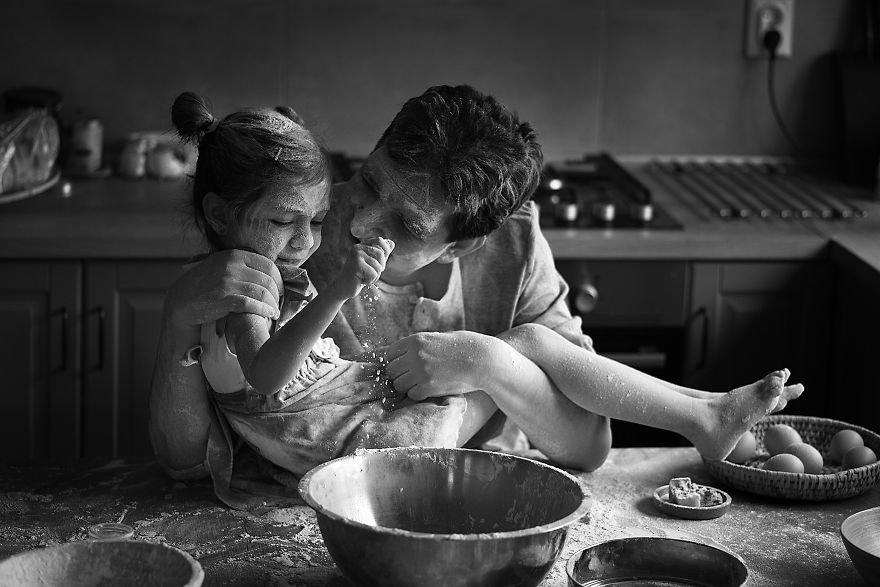
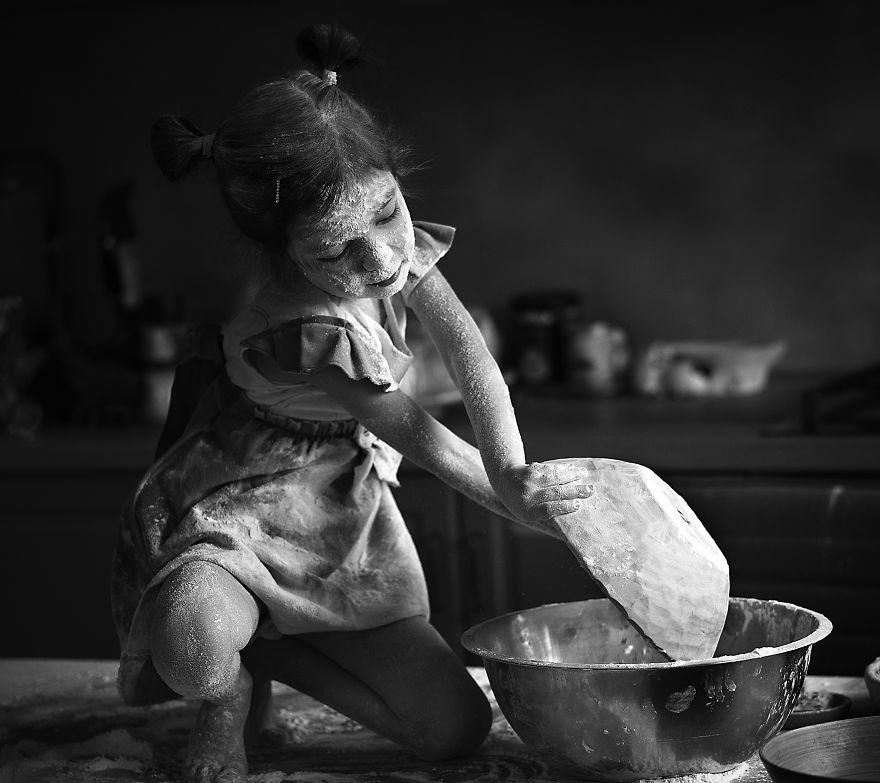
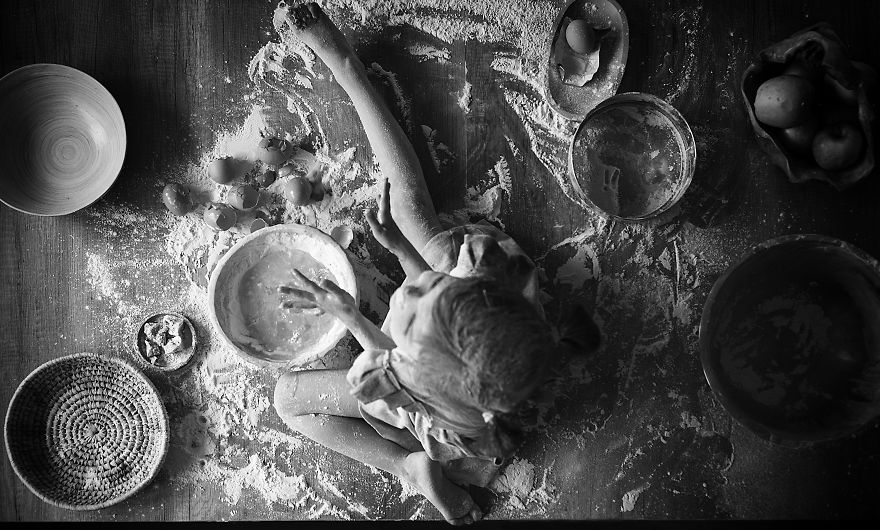
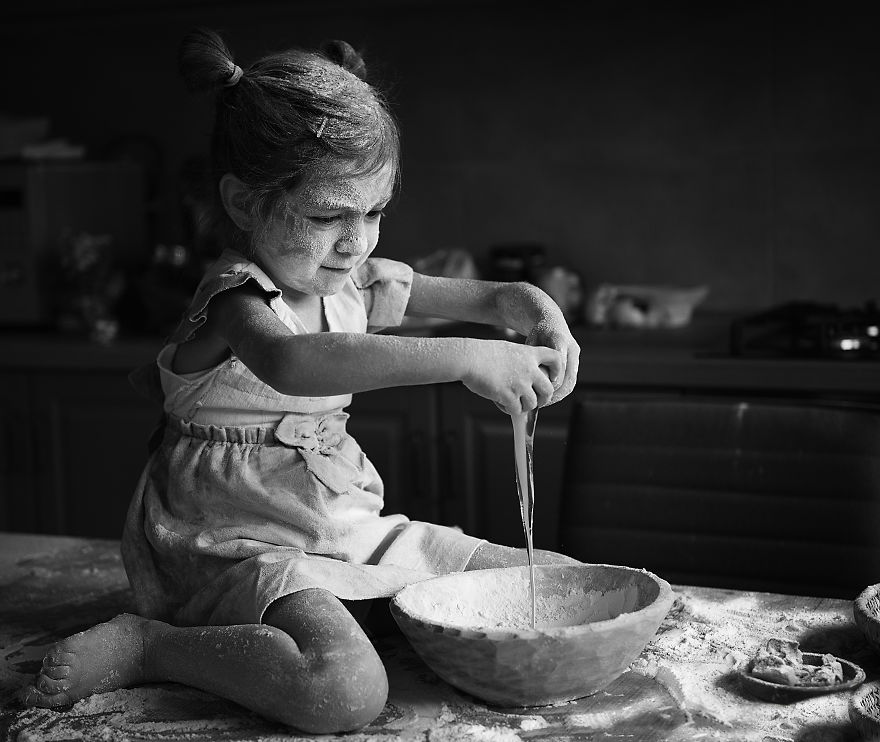
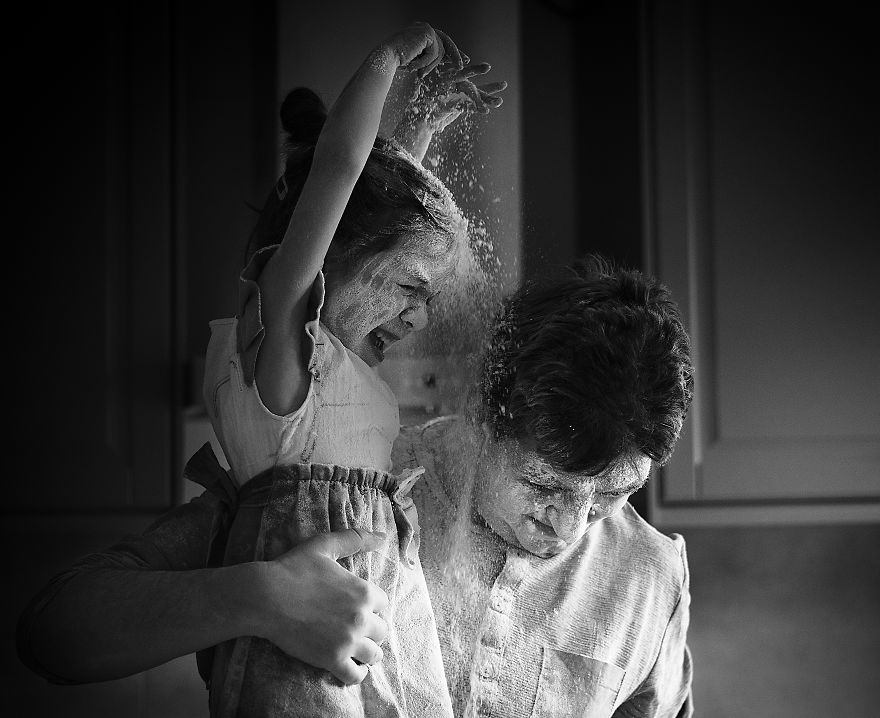
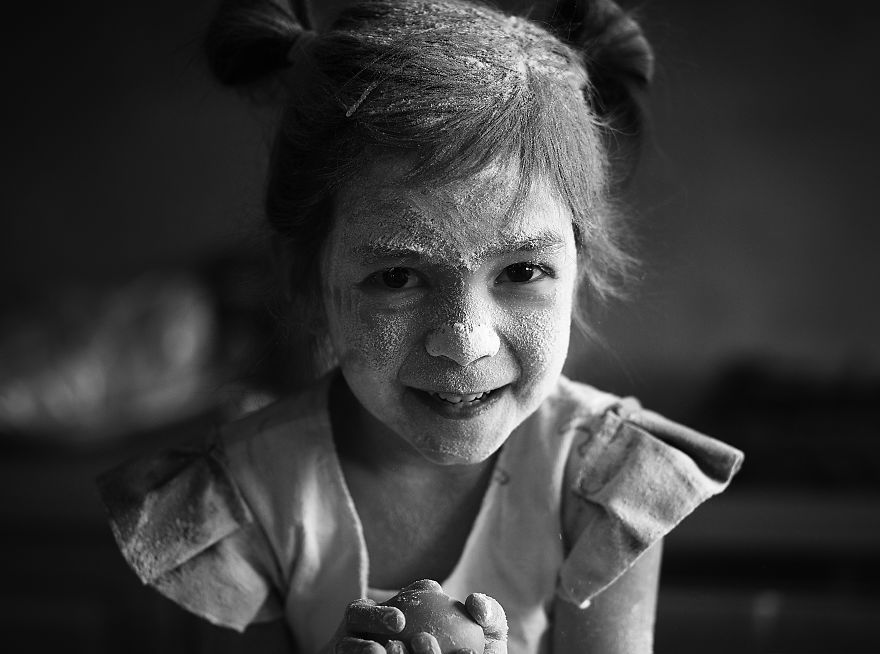
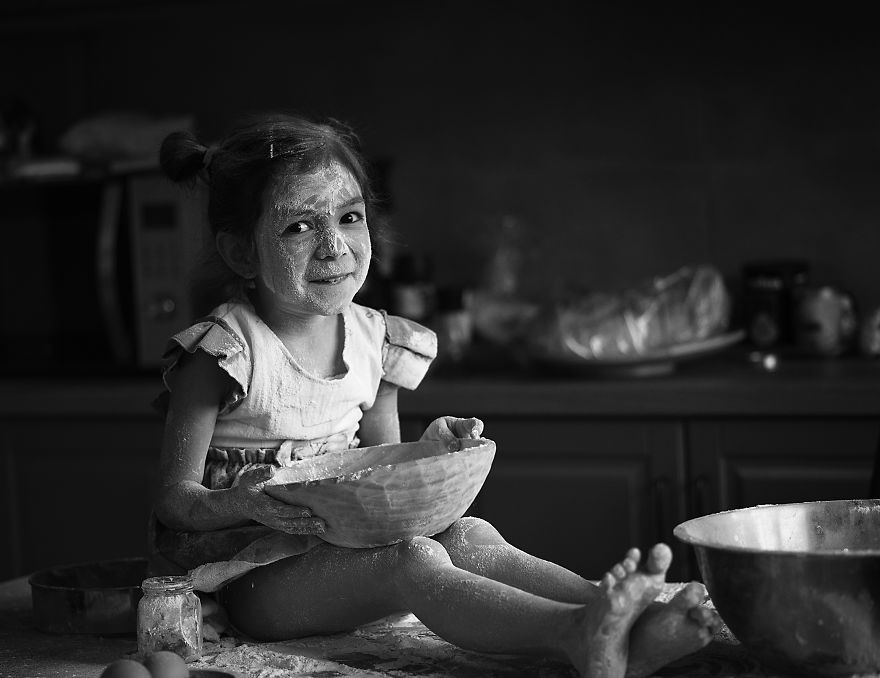
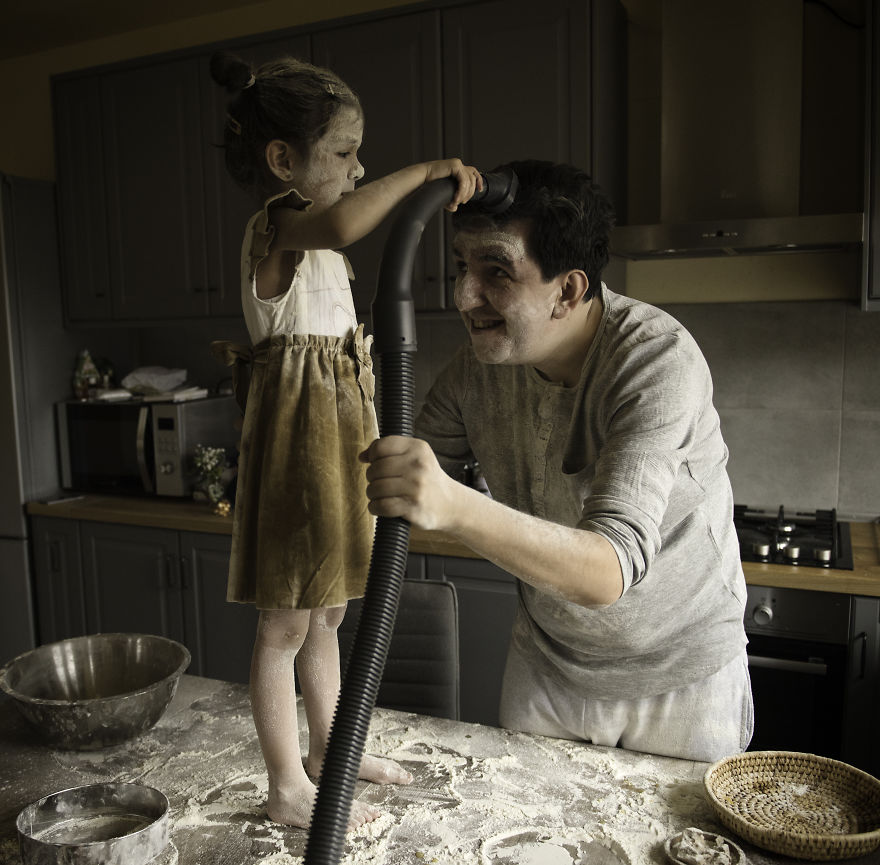
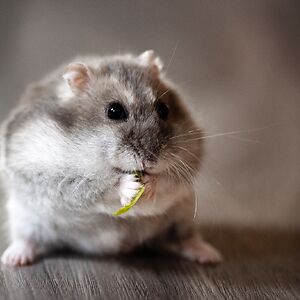



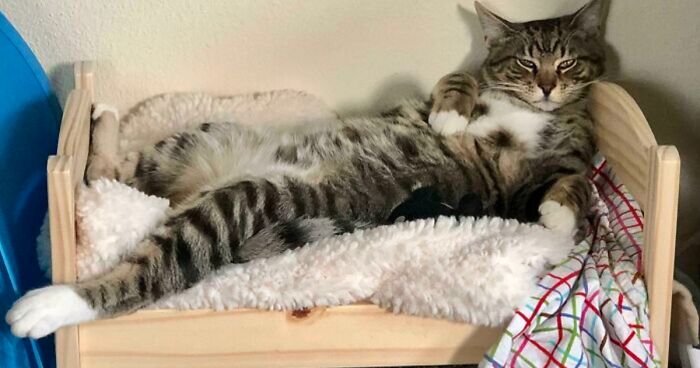

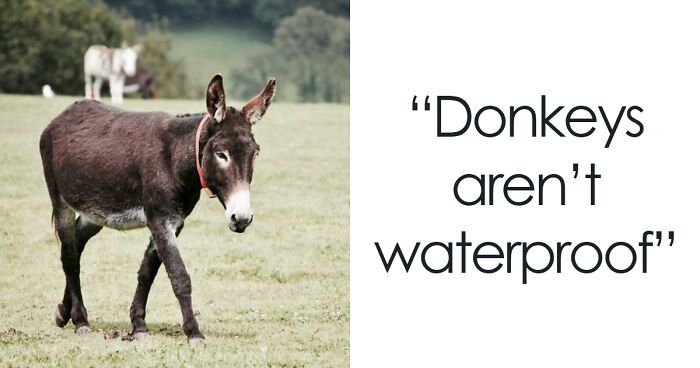

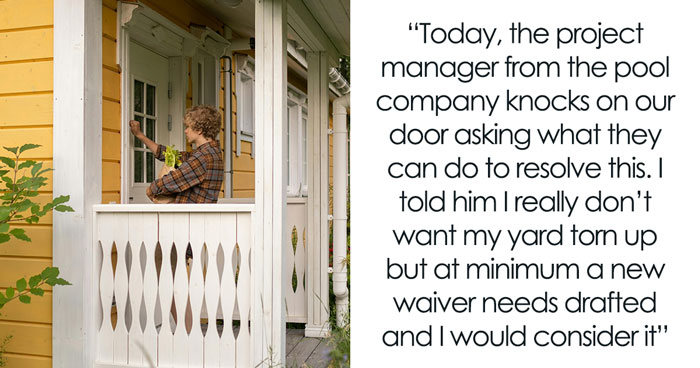
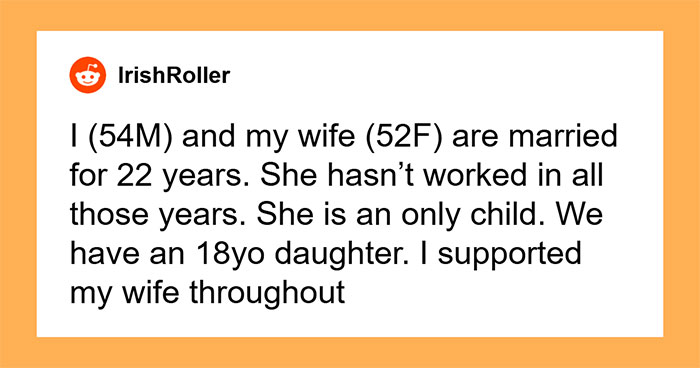
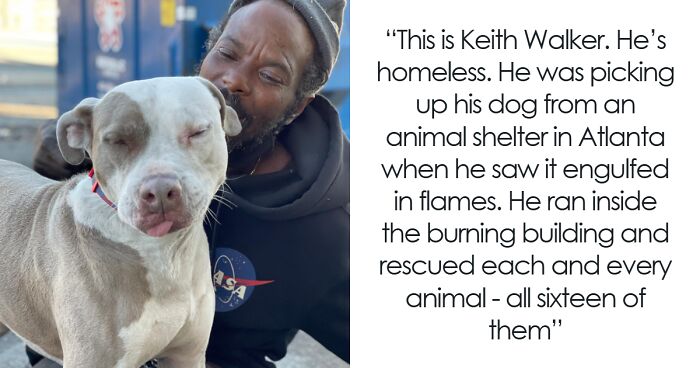
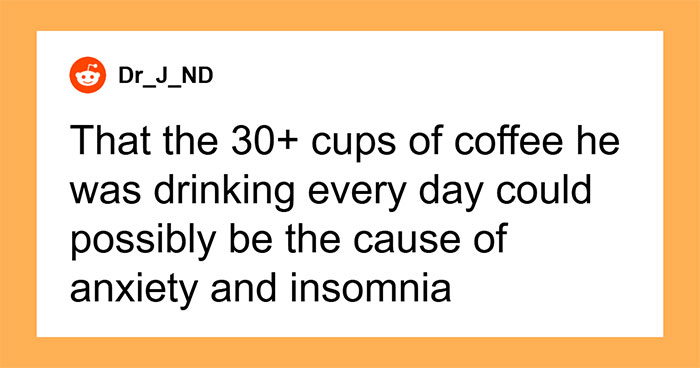
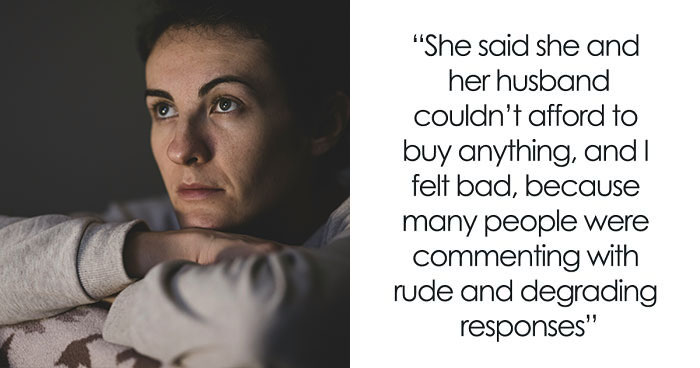
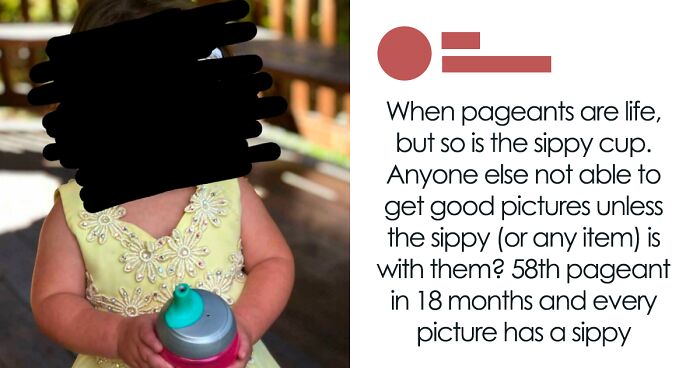
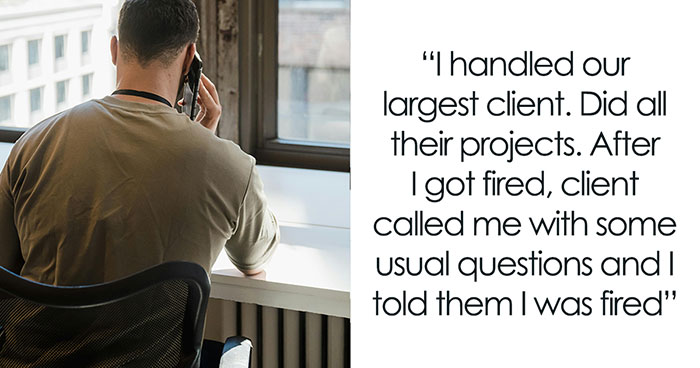


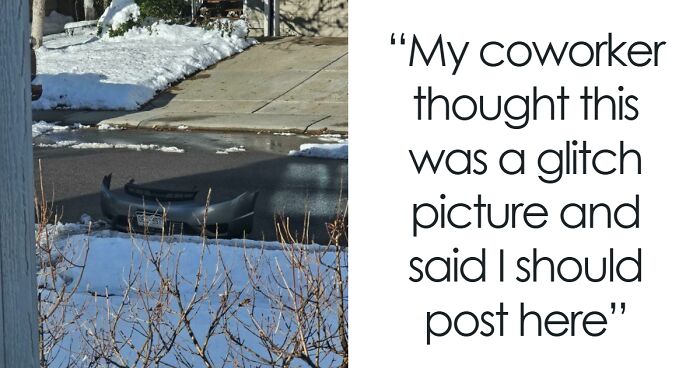

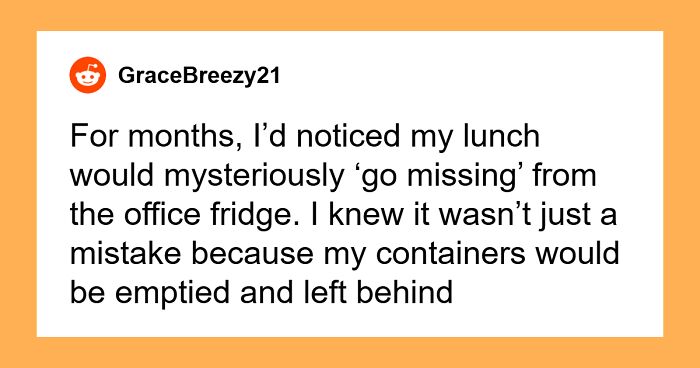



28
12